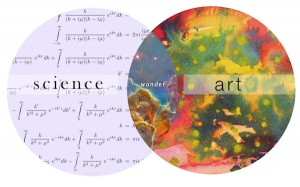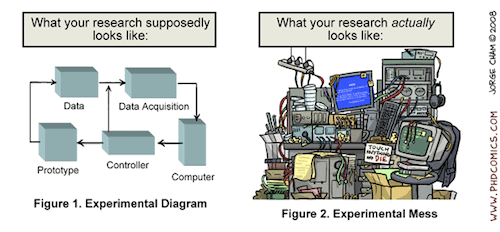What If? Writing Prompts: Nature I
It’s Earth Day, and that means it’s the perfect time to appreciate the wonder that is our natural world. And what better way for writers to get into the spirit of the day than with some nature-themed “What If?” Writing Prompts? In celebration of our beautiful Earth, here’s a fresh batch of prompts for you, the first in this segment set to the theme of nature. Enjoy, and Happy Earth Day!
 What if… every single human in the world suddenly disappeared?
What if… every single human in the world suddenly disappeared?
(Source: AsapSCIENCE video – “What If Humans Disappeared?“)
What if… there were a superhero among wild animals who fought against the destruction of their habitat?
What if… the trees in deforested areas could talk?
What if… everyone in the world accepted that climate change is a real and ongoing threat to life as we know it?
What if… all of humanity made an effort to protect the environment and preserve the natural wonders of our Earth?
Have fun writing your own stories about nature and the Earth!
If you have any “What If?” writing prompt suggestions (for any theme), please feel free to share them in the comments below. Ideas I like may be featured in future “What If?” posts, with full credit and a link to your blog (if you have one)! Also, if you’ve written a piece based on an idea you’ve found here, be sure to link back to the respective “What If?” post. I would love to see what you’ve done with the prompt! Thank you!
Word of the Week: Circuitous
Word: circuitous
Pronunciation: sər-KYOO-ə-təs
Part of Speech: adjective
Definition: longer than the most direct way
Source: Oxford Dictionaries
Today’s Word of the Week was suggested by the mother-daughter writing team Inion N. Mathair, who discovered it while writing their novel Nightwalkers: The Secret of Jessup. Although the word did sound vaguely familiar when Inion requested I feature it here, I confess I had to look it up to remember what it meant. I have to say, these lovely ladies have good taste in vocabulary, because as soon as I read the definition, I realized I could have used this word in some of my own stories already! I have written a few characters who like to take the long way around. Thanks for the suggestion, ladies!
A “circuitous” route or journey is one that’s longer than the most direct possible path. The word comes from the Latin adjective circuitosus, which in turn stems from the noun circuitus, meaning “a way around”. This noun is derived from the verb circumire “to go around”, which is comprised of the adverb circum “around” and the verb ire “to go”.
When I think of the word “circuitous”, the first image to come to mind is a literal road that goes around the straightest way, but I assume it works equally well in the metaphorical sense of a journey that takes longer than the most direct route to a goal. If your characters often tend to avoid the short way to a destination, you can no doubt work a few “circuitous” paths into your stories! Good luck!
What are your thoughts on this word? Any suggestions for future “Word of the Week” featured words?
The Hunt
(What If? Exercise: Read the description here.)
She ran as fast as she could, faster than she knew she could, faster than she had ever run in her life, down the hill, into the forest, past the young saplings she hardly knew toward the old towering oaks she had known as a cub, the same oaks she hoped would be a haven to her own cubs, the beloved litter of four she had carried for nearly two months and for whom she had traveled so far to find food, for whom she had almost found a hearty meal until the dogs had sent her fleeing, the very dogs who had made of her a widow since the day they had torn her mate apart and their men had mounted his beautiful red tail on their wall, leaving her to raise four hungry pups on her own, pups who desperately needed her to survive this chase and make it home alive, and the thought of their innocent faces put a spring in her heels as she sprinted from the sounds of barking and hooves pounding on the cold hard earth, leaving them farther and farther behind in the evening mist, until at last she heard nothing but her own breathing and the rustling of leaves under her paws, and before she knew it, she was diving headfirst into the safety of her den and the warmth of her children’s tiny bodies huddling around her, exhausted yet relieved that they might have a chance to see the coming of another spring.
This story is based on What If? Exercise 90: “The Journey of the Long Sentence”. The exercise is to write a short short story that’s only one sentence long. The objective is to understand how we can shape our writing in a similar manner that our minds function, building a linear order for observations that often consist of many overlapping aspects. I hope you enjoy what I’ve written. Thanks for reading!
The Art of Science and the Science of Art: Research
Back to the subject of art and science! Since starting a discussion on this topic last month, I’ve already talked about the reading and writing aspects of the comparison between art and science. Now I’m inspired to get into another topic that has held my interest for as long as I can remember: research. How do these two sides compare when it comes to looking things up?
How the Art is like the Science

At the intersection of Art and Science lies Wonder. – The Imaginary Foundation
Research is a technique that every serious writer must master, regardless of medium. Scientists need to acquire purely factual information to form a solid foundation of credibility for their studies and continuously guide their work toward new discoveries. Journalists have to be aware of all the facts of a story in order to accurately convey the news to their readers/viewers. Even fiction writers and poets draw ideas from real life to paint a vivid image with the details in their stories and poetry. No matter what we choose to write, we should always do at least a little research to make our work believable, and that’s why the best writers do well to keep reference books, articles, and search engines handy at all times.
What makes most literature relatable is that no matter how fantastic the details may be, there’s always some base of truth with which the reader can connect, whether it’s the spectrum of emotions shown by fictional characters or world news that directly or indirectly affects us. As writers, it’s up to us to curate the ideas we want to share with our audience and present them in a way that makes our writing fresh and interesting, for fiction and non-fiction alike.
Research is a universal term for looking up information that we can put to good use. The differences, however, lie in the purposes of this practice…
How the Art is unlike the Science
Artistic writing is widely popular as an escape from reality for the fascinating stories one can only find in fiction. That being said, a writer can’t expect for more than a handful of readers to enjoy their work unless they can somehow bridge the gap between the fictional world of their stories and the real world of their audience. This is where research plays a key role. Writers of historical fiction have to know as many specific details as possible of the past events around which they construct their tales. Science fiction writers should have at least a basic understanding of real scientific principles before attempting to pass their stories off as even remotely plausible. Murder mysteries and thrillers rely on plots that could happen in real life in order to achieve their full effect, and romance novelists need to understand human nature and relationships if they want to make their characters relatable. Research is important for all forms of artistic writing, and fiction writers who master it will find their craft all the more enriching for it.

(Courtesy of PHD Comics)
Scientific writing, on the other hand, thrives on research taken to a whole other level. While research for writing may be optional for many artists, it is unequivocally mandatory for scientists. Not only are we expected to read everything related to our field of interest, but we have to do so before we even think about writing our own work! If I learned anything from my first years as a Biology student, it’s that you can’t expect to make it in the scientific community unless you’re constantly reading. Academic papers, books, news articles, any source of information relevant to your studies can and should be perused. Science is all about the progression of knowledge, and in the modern age of the Internet, new information is emerging faster than ever: every week, in fact, if not every single day. In short, research is an enhancement that artists choose to pursue, but lack of research is a hindrance that scientists cannot afford.
Like many aspects of writing, research is something of an art and a science itself. It may not be easy for every writer to acquire the habit, but once you get the hang of it, you’ll find that research is an invaluable practice that will help you connect with your readers and elevate your writing to wonderful new heights. Best of luck! Thanks for reading!
Word of the Week: Abysmal
Word: abysmal
Pronunciation: ə-BIZ-məl
Part of Speech: adjective
Definition: extremely bad; appalling
Source: Oxford Dictionaries
Man, this is bad. And I’ve had my share of bad reviews. I still remember my first good one, though. “Everything else in this production of Our Town was simply terrible. Joey Tribbiani was abysmal.”
– Joey Tribbiani, Friends (Season 8, Episode 21 – The One With The Cooking Class)
While we’re on the subject of vocabulary used on Friends, why not take the opportunity to learn another word from Joey? Interestingly, the first time I remember hearing the word “abysmal” was in a case where it was being used incorrectly. While everyone is reading a terrible review of Monica’s restaurant in the newspaper, Joey comments that among all the negative reviews he’s ever received on his acting, he distinctly remembers his first positive one. However, he quickly makes it clear that he has no idea what the critic meant by “abysmal”, for the comment he thinks is that his performance was the best thing in the play is actually that it was the worst.
Anything considered “abysmal” is awful or of extremely poor quality. This informal word dates back to the early 19th century as the adjective form of the noun “abysm”, a literary term for “abyss”. The latter word comes from the Latin noun abyssus “bottomless pit”, which in turn is derived from the Greek adjective abussos, meaning “bottomless” or “without depth”.
Aside from its common meaning, “abysmal” can also be used as a literary term for “very deep”. This definition is relatively rare in modern use, though, so you may not see it much in this sense except in very specific contexts, such as in poetry about the sea. In any case, it’s safe to assume that whatever is described as “abysmal” is being portrayed in a negative light, so be sure to keep that in mind the next time you need to define something horrible in your stories. The important thing is that your readers don’t consider your work itself “abysmal”! Good luck!
What are your thoughts on this word? Any suggestions for future “Word of the Week” featured words?


Recent Comments